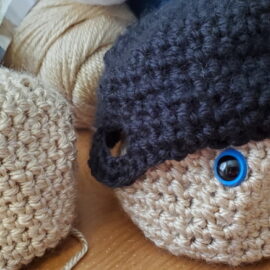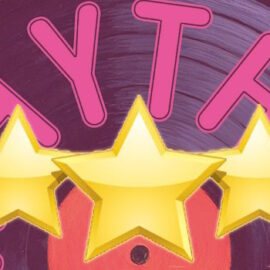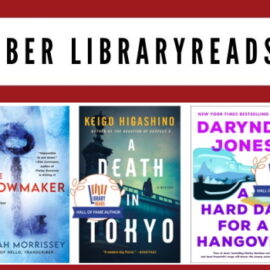
Next to actually writing a book, sometimes the hardest thing to do is to define your book. Where does it fit in? What shelf does it belong on? Who is reading it? (And just as important, who is publishing it?)
Unless you sat down to write a specific genre, studied the rules and read multiple examples, picking the genre might be hard. Even if you *DID* study the rules, picking a genre is often still difficult. And then, there are the books that intentionally bend and blend genres.
This is a list of primary genres, with some sub genres. For example, the genre Mystery has the sub genres of Cozy, Classic Detective, Noir, etc. You might not think that your book fits one genre but then you’ll find it does fit neatly into the subgenre. I don’t know if it’s possible to list all possible subgenres and combinations – below is just a sampling.
As part of my migration to my new website, I’m featuring some of my most useful writer’s resources here. Please note, this content is compiled from multiple resources (not primarily original content!) and is only intended as a handy guide, *not* the definitive source. As with all subjective subjects, this is just a guideline. Individual agents and publishers may have differing expectations, so always make sure to check with them.
Some of the wonderful sources I used in compiling this list are http://www.nycmidnight.com/genres.htm and Writer’s Digest.
DISCLAIMER: These are *my* interpretation of categories based on my research. Some sources will claim that genres below are subgenres, or vice versa. There are many alternatives and nuances in each category. This is meant to be a starting point – always research your genre with multiple sources and confirm with an industry professional or librarian! Any mistakes are my own.
Genres and Subgenres
Action/Adventure – suspense stories. Usually there is a central mission with external dangers to avoid and obstacles to overcome. The Main Character (MC) can be a professional risk-taker (Fire Fighter, Spy) or ordinary folk.
- Thriller – fast-paced stories where MC is in danger or is preventing a larger (usually not political) danger. Uses fear and excitement as a hook – a “Page turner”
- Spy Thriller – central theme is espionage, patriotism, and high-stake missions. Typically political or involving multiple adversarial countries. This should go without saying, but a spy thriller without spies is *not* a spy thriller.
- Crime Caper – (can also be Mystery) Usually the MC is the “bad guy” who sets out to rob a bank or kidnap someone for money, fame, or even by mistake. The reader knows from the beginning that this is a heist or a swindle or a con job
- Procedural – (Can also be Mystery if crime is murder) Professional crime solver (usually police or forensics) solve a high-stakes crime, which may have a high risk factor (IE criminal will strike again)
Comedy – satiric or funny stories set in humorous situations or with humorous characters. A reader doesn’t have to laugh on every page to be a comedy – the best comedies can also make a reader weep.
- Dark comedy – deals with serious, dramatic themes. Usually not “laugh out loud” but may cause uncomfortable laughter. Can contain graphic violence or situations.
- Political Satire – uses sarcasm or humor to reveal the dirty underbelly of politics
Drama – mostly realistic emotional journeys. It can be raw and gritty, dark, or even ordinary but the underlying problem is interpersonal or social. Stories of addiction or infidelity are usually dramas.
Fairy Tale – folklore and magic are central themes. Note that both fantasy and fairy tales can have the same kind of magical creatures – unicorns, elves, etc – fantasy is usually about the journey and fairy tales are about the lesson.
Fantasy – imaginative journeys, supernatural encounters, and fictional settings (alternate dimensions) are the center of fantasy. Most fantasy has a magical system or elements. Typically light-hearted but can be macabre or dark. Usually includes world building. Often crosses with Sci-Fi and is sometimes lumped together as SFF (Sci-Fi/Fantasy, also sometimes called Speculative Fiction).
- Alternate History (can also be Sci-fi) – What if. Examines the question of how would the world have turned out if earlier events (usually caused by supernatural intervention) were different
- Steampunk (can also be Sci-fi) – alternate timeline with differing technologies, which may or may not be based on magic
- High Fantasy – can involve quests, dragons, etc. Often “good vs evil”. Many include detailed maps of an imaginary world.
- Urban Fantasy – (my favorite!) Werewolves, witches, vampires, and other supernatural creatures, often in a city setting and usually told from the point of view of a supernatural creature.
Historical Fiction – based in a real human era, focused on actual or imaginary people from that time and place, acting in a manner consistent with their mores.
Horror – fear, suspense, and psychological trauma. Can include jump scares or a build up of dread culminating in a big finale. The purpose of horror is to scare the audience.
- Ghost Story – scary tales of ghosts and hauntings. Often crosses into supernatural.
- Supernatural Horror – similar to urban fantasy, except that the werewolves/zombies/wizards or other supernatural creatures may be the antagonist rather than the protagonist.
- Splatter – very gory.
Mystery – typically (but not always) solving a crime or death. Classic who-dun-it. However, the mystery must be central to the plot. Many novels have a mystery that the main character must solve but is primarily a romance, sci-fi, fiction, etc book with mystery elements.
- Murder mystery – A book that’s central plot is solving a murder mystery. Readers will often cry foul if the “murder” turns out to be an accident or a suicide. A mystery without a murder is still a mystery! It’s just not a murder mystery.
- Cozy Mystery – one of my favorite mystery subbgenres! Cozies are PG- or G-rated murder mysteries where there is no on-scene blood, violence, sex, or gore. Typically set in a quaint town, the MC is an amateur busy-body rather than a professional sleuth. #killermystery. This is a genre with many rules, such as: no children/animals are harmed; the murder should take place in the first 10% of the book; there needs to be a cozy “hook”; the death takes place off the page; the killer is caught at the end.
- Noir – Gritty dark P.I. stories with formulaic pacing and themes. May have a central mystery that does not always include death or crime
- Locked Room – either all suspects are geographically isolated (i.e. all on the same island) or the victim is geographically isolated and no one could have logically gotten to them (i.e. behind locked doors)
- Private Detective – Detective for hire (may cross with Noir, depending on the tone)
- Forensics/Procedural – (Can also be Thriller if stakes are high) Professional crime solver (usually police or forensics) solve a crime or murder using existing tools and exceptional knowledge or intuition.
- Supernatural Mysteries – A mystery with strong, central supernatural elements. A werewolf that has to figure out who killed his father in order to rise to power is probably a urban fantasy, not a mystery. A werewolf that runs a detective agency is probably a supernatural mystery (or supernatural private detective mystery).
Romance – one of the most popular genres, it is the story of two (or more) people who meet (usually cutely) and fall in love or develop a relationship. May include implicit or explicit sexual situations. Often has a choice to be made between two different partners or locations.
* note: every genre has rules. For Romance, it’s a HEA (Happily Ever After ending). If it doesn’t have a HEA, it’s not Romance.
- Erotica – may or may not have romantic love elements, but primary focus is on the details of sexual encounters
- Romantic Comedy (RomCom) – love / relationships meets humor. Typically focuses on lighter subjects with a central mistake or misunderstanding followed by a happy ever after. Can include “True Love” themes.
- Chick-Lit – usually from the woman’s point of view, and may be more focused on the mechanics of the relationship than any sexual situation. Usually funny, and usually revolves around women in their 20s and 30s in an urban environment.
Sci-Fi – Science Fiction. Imaginative stories set in a alternative universe, outer space, or another planet. Similar to Fantasy except instead of having a magical mechanism, is based on theoretical or actual scientific principles. Can include politics and world building elements. Often crosses with Fantasy and is sometimes lumped together as SFF (Sci-Fi/Fantasy, also sometimes called Speculative Fiction).
- Time Travel / Alternate History – (can also be Fantasy) – What if. Examines the question of how would the world have turned out if earlier events (usually caused by scientific or human intervention) were different
- Pulp – early sci-fi, often serialized
- Alien – involving extraterrestrials, may involve space travel
- Space Opera – rather than long-distance space journeys, ships travel quickly between worlds and may engage in combat or wars. Usually focuses on the interpersonal tensions of the characters rather than the specific mechanisms of space flight
Suspense – slow build up of unease or anxiety as the danger is unveiled over time. Whereas a Thriller usually has a central “action hero” character, a Suspense relies on a MC that may not even realize they are in danger. Can also cross into Thriller, or is lumped in with Thriller
- Unreliable Narrator – a suspenseful situation where the MC may or may not be the bad guy behind the danger, rather than the person in danger.
YA – or Young Adult, is NOT a genre by the standard definition. YA has a young (typically teen or tween) Main Character and may be aimed at a younger audience but can be enjoyed by all ages. YA is a modifier of the existing genres, so a YA can be “YA Sci-Fi”, “YA Ghost Story”, etc. For example, Harry Potter has a young set of characters that are wizards and is written for children and above, so it would be YA Fantasy.
#TheWriteLife #OliviaBlacke



